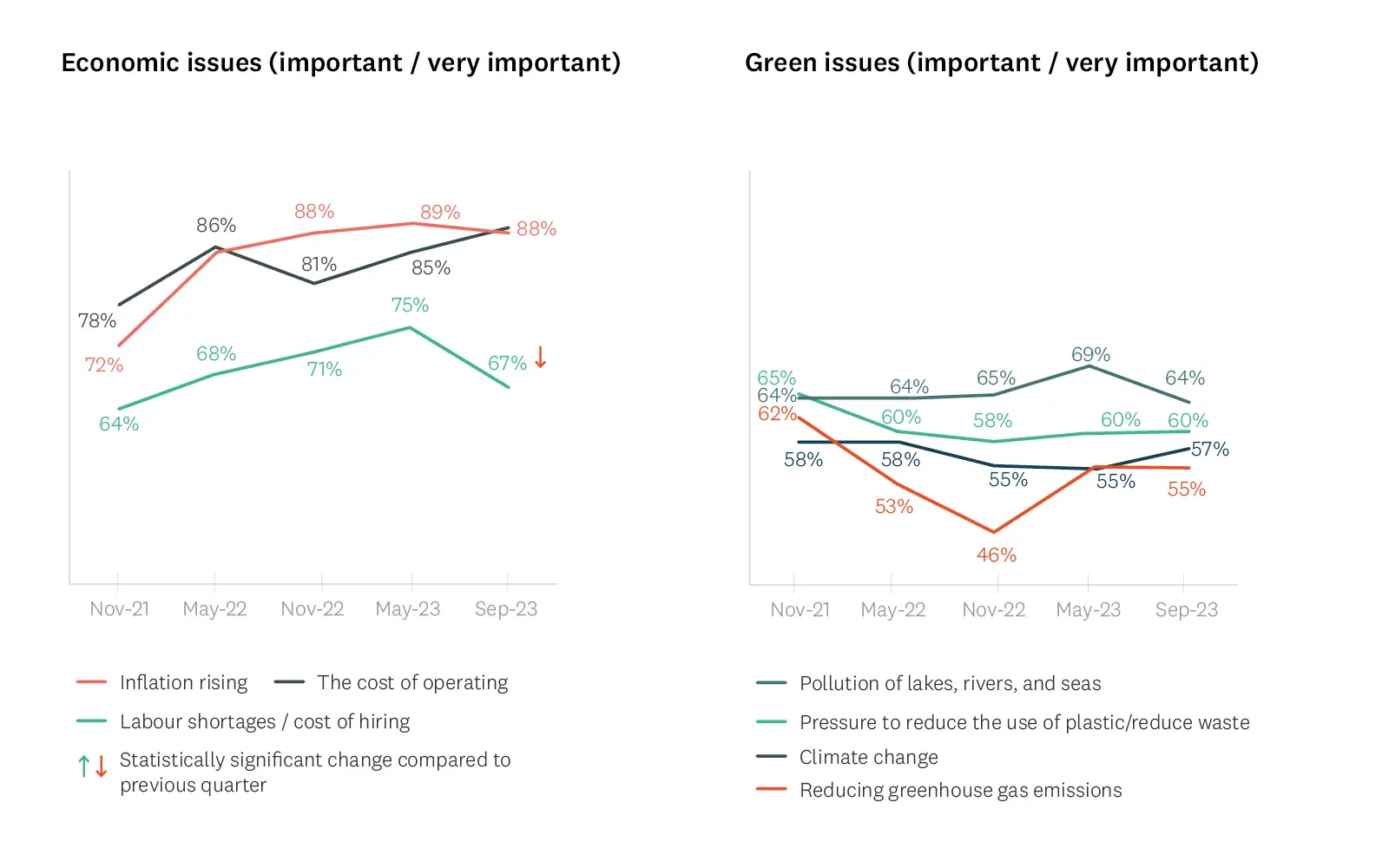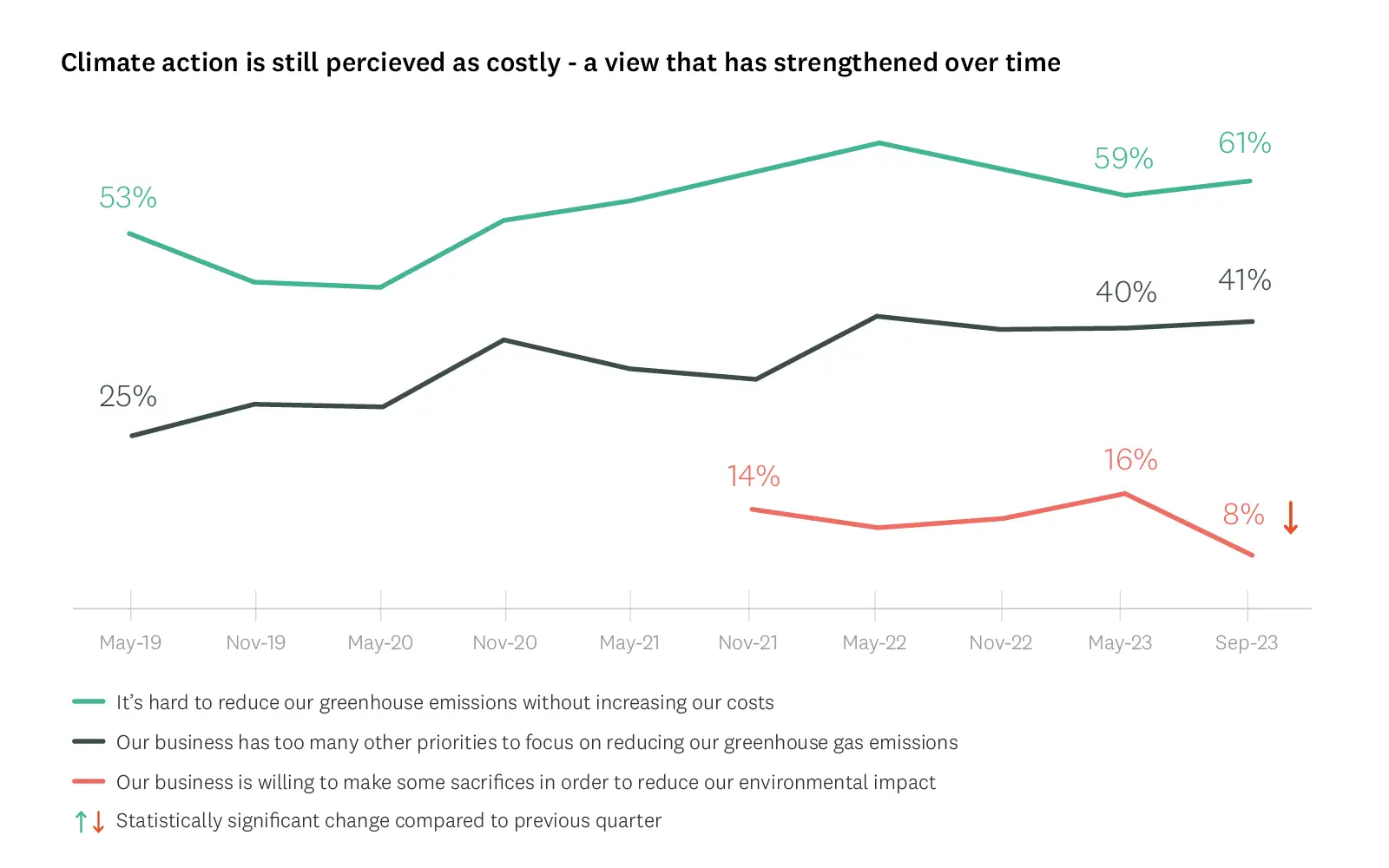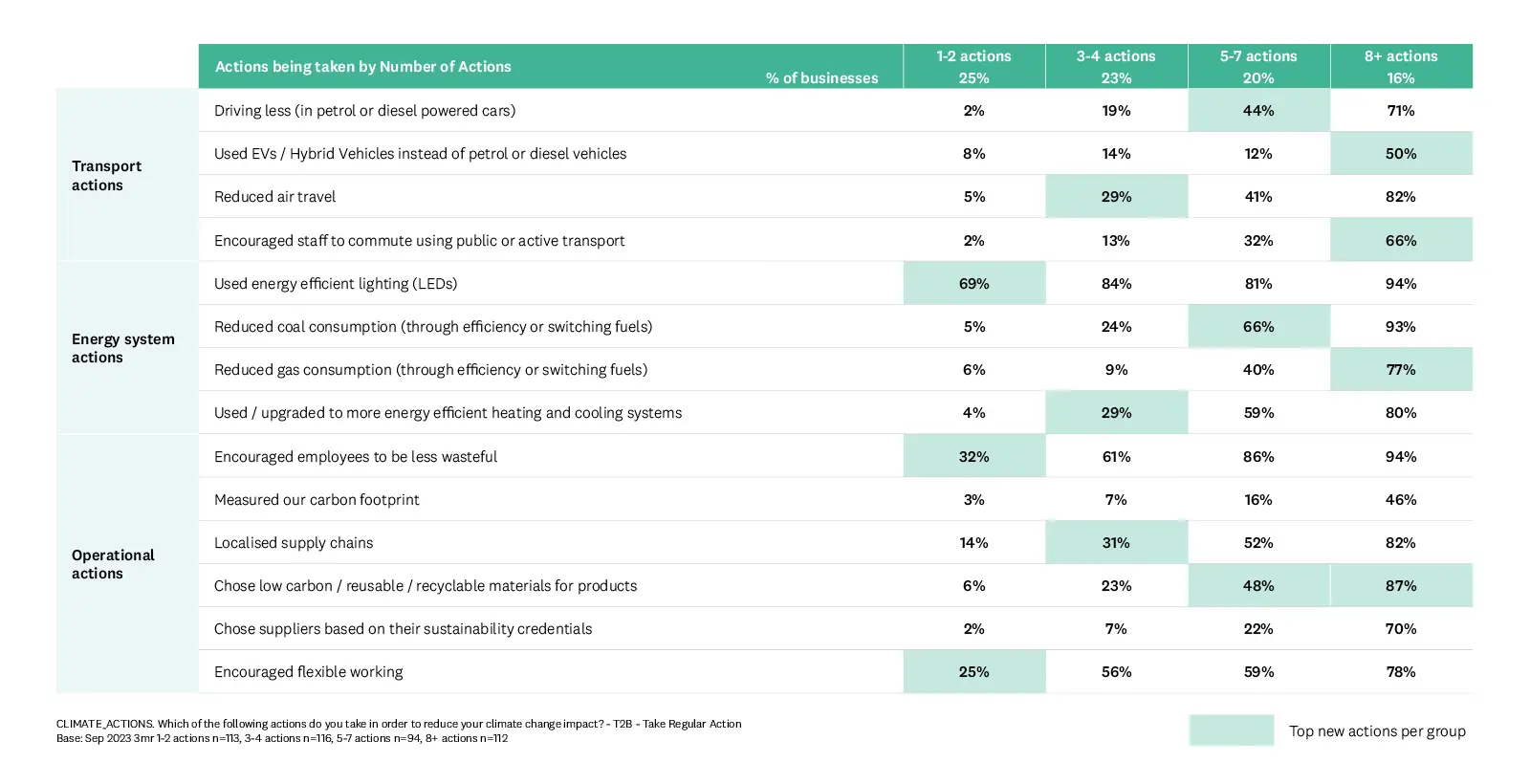Overview
Every quarter we survey a representative selection of New Zealand businesses of all sizes, sampling business decision makers in relevant areas including decision makers responsible for personnel, vehicle or energy decisions. Are they concerned? Taking action? How does it stack up against other business priorities?
This survey of 591 business decision-makers from across sectors and sizes took place from August - September 2023.
Findings
Last quarter we saw signs of businesses realising that climate change is something they need to engage with, however this quarter attention has slipped. In these uncertain times, businesses are focused on the day-to-day, and climate change has been knocked further down the priority list. It’s harder for businesses to make sacrifices when they’re weighed down by other priorities and perceive taking action as costly.
Despite this, more and more businesses understand that as a collective, they can make a difference. And climate-positive actions have largely held steady.
Climate-positive actions are holding steady, and increasing in some cases
Of the 14 energy-related actions we ask business decision makers about, 6 have held steady or increased compared to May 2023. On average, businesses report taking 4.7 of those actions.
The top three increases were:
- Using energy efficient lighting 71% (+12)
- Reduced air travel 32% (+6)
- Reduced coal consumption 41% (+4)
Businesses start with more accessible, low-cost actions, and build momentum
While a quarter of businesses are taking just one or two climate-positive actions, 16% are at the other end of the scale, taking 8 or more. Businesses taking the most actions are more likely to take those that have a higher perceived investment, such as driving EVs or hybrids, switching fuel use away from coal or gas, or upgrading systems to be more energy efficient.
Read more EECA insights
-
Charging forward: trialling battery electric trucks in your fleet
Information for businesses considering investing in zero-emissions heavy vehicles.
- Co-funding
- Electric vehicles
- Decarbonisation
-
A deep dive into how New Zealand businesses approach energy use and climate change
A look at the impact business sector, size, and region have on their willingness and ability to tackle climate change.
-
The business good of decarbonisation
By playing your part in New Zealand’s transition to a low emissions future, your business can reap financial and non-financial benefits
- Decarbonisation
- Fossil fuel
- Fuel switching



